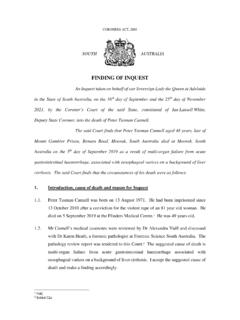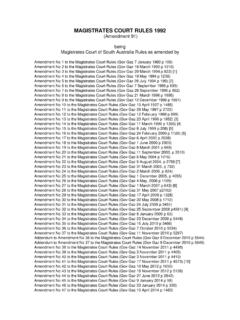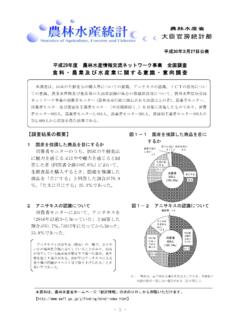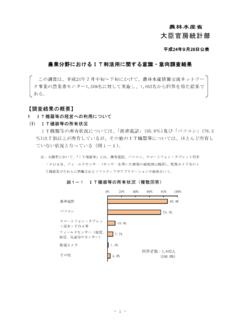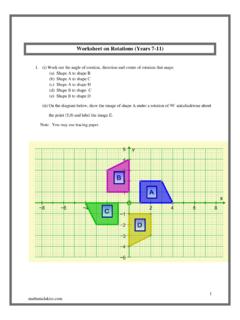Transcription of FINDING OF INQUEST - Courts
1 CORONERS ACT, 2003. SOUTH AUSTRALIA. FINDING OF INQUEST . An INQUEST taken on behalf of our Sovereign Lady the Queen at Adelaide in the State of South Australia, on the 21st day of June 2013, the 2nd and 30th days of September 2013, the 1st, 2nd, 3rd, 4th, 8th, 9th, 10th and 11th days of October 2013, the 17th, 18th, 19th, 20th, 24th and 25th days of March 2014 and the 7th day of July 2014, by the Coroner's Court of the said State, constituted of Mark Frederick Johns, State Coroner, into the death of Zahra Abrahimzadeh. The said Court finds that Zahra Abrahimzadeh aged 44 years, late of 8. Drummond Street, Brooklyn Park, South Australia died at the Royal Adelaide Hospital, North Terrace, Adelaide, South Australia on the 22nd day of March 2010 as a result of incised wound to the chest with superior pulmonary artery injury.
2 The said Court finds that the circumstances of her death were as follows: 1. Introduction and cause of death Zahra Abrahimzadeh died on 22 March 2010. An autopsy was conducted by Dr Carl Winskog of Forensic Science SA and in his post-mortem report Dr Winskog gave the cause of death as incised wound to the chest with superior pulmonary artery injury1, and I so find. Mrs Abrahimzadeh was 44 years of age at the time of her death. Zahra Abrahimzadeh was stabbed repeatedly by her estranged husband, Ziaolleh Abrahimzadeh, at a Persian function held at the Adelaide Convention Centre on the evening of 21 March 2010. Zahra was taken to the Royal Adelaide Hospital but could not be saved.
3 Ziaolleh had been physically and psychologically abusive to Zahra and their three children ever since Zahra had married him in about 1984 or 1985. 1. Exhibit C1a 2. On 12 February 2009 (some 13 months before Zahra's death) Ziaolleh assaulted Zahra and her adult daughter, Atena Abrahimzadeh, and threatened to kill both Zahra, Atena and the other two children, Arman (who was then an adult) and Anita (who was then a child). Following that episode of violence, Zahra decided with her elder children that she and they would leave Ziaolleh and the family house and seek refuge elsewhere. Accordingly, Zahra and her two elder children attended at the Salisbury Police Station on the afternoon of 23 February 2009 having packed their possessions in Zahra's car to report the episode of domestic violence.
4 It was their plan to collect Anita from school that day and take her with them. I will describe the 12 February 2009 assaults and threats in greater detail below. Between 23 February 2009 and the murder of Zahra by her husband on 22 March 2010, Ziaolleh was never arrested or reported by police for the offences he was alleged to have committed on 12 February 2009. To be quite clear, for a period of some 13 months, between the date of the attendance at Salisbury Police Station to report the domestic violence and the date of Zahra's death, Ziaolleh was never dealt with by the criminal justice system for his alleged offending.
5 That was because the first step in the criminal justice process, namely arresting and charging Ziaolleh for the reported offending, never occurred at anytime during those 13 months. In my opinion the single most important and decisive step in deterring Ziaolleh Abrahimzadeh from acting violently towards his wife was to arrest and charge him for his alleged offences. That said, police did take action to obtain a domestic violence restraining order against Ziaolleh in favour of Zahra. That order was served upon him by police in late April 20092. With that exception, and apart from contact with police prosecutors as the domestic violence restraining order, which was subject to confirmation, moved through the court process, there was no contact between Ziaolleh and police for the purposes of the underlying criminal allegations.
6 In my opinion this failure to arrest and charge Ziaolleh meant that a very significant deterrent to any further violent act by him and threats by him against the family did not exist. 2. This was witnessed by Arman Abrahimzadeh when he attended at the family house to remove family possessions and saw his father being approached by a police officer, Transcript, pages 86-87. 3. One of the most powerful influences that police can have in a context where a person has been violent, or threatened to be violent, is the power of arrest and charging. If that power is not exercised expeditiously, or worse still is not exercised at all, there is a real danger that the offender will think that he or she has got away with it', to use the vernacular.
7 I am afraid that this kind of thinking was a feature of Ziaolleh's behaviour in this case. Indeed, as will be revealed later, at one stage during that 13 months he taunted the adult children by saying that he had not been arrested or otherwise dealt with by police for the original allegations. It was clearly a factor that gave him a sense of security and bravado. This is the single most important lesson to be learnt in this case. It is notable that in dealing with Ziaolleh Abrahimzadeh's appeal against sentence, the Full Court3 noted the importance of deterrence when the court fixes a non-parole period when sentencing for a murder involving domestic violence.
8 The Full Court cited the observations of King CJ in The Queen v Stewart (1984). 35 SASR477 where he said that the safety of people who might become the victims of domestic violence depends upon their likely perpetrators understanding that giving way to violent inclinations and causing death is likely to result in spending the greater part of their lives in prison. King CJ said: 'It is only that knowledge which is likely to provide any deterrence to persons so disposed and, therefore, likely to provide any safety to those whose lot in life is to be in personal relationships with them. There is therefore a very grave responsibility upon the Court in fixing a non-parole period in crimes of this kind.
9 ' 4. If deterrence is important when a court comes to sentence an offender in a domestic violence case, it is every bit as important for police to exercise their powers of arrest and charging in the exercise of their duty to prevent and deter further domestic violence offending. 2. Background The evidence is very clear that Ziaolleh had been violent towards his wife and children for many years. Ziaolleh and Zahra were married in Iran in about 1984 or 19855. It was an arranged marriage. Ziaolleh was Afghani by birth. He moved to Iran when he was about 23 years of age. He was forced to work illegally in the field of construction.
10 Atena, the eldest daughter, was born in about 1987 in Afghanistan. 3. See [2012] SASCFC 112. 4. The Queen v Stewart (1984) 35 SASR477 at 479. 5. Exhibit C108b, Family Court Affidavit 4. Arman was born one year later, also in Afghanistan. Anita, the younger daughter, was born in Australia in about 1998. The family moved to South Australia in about 1997. Zahra was Persian by birth. Ziaolleh had extended family in South Australia. On the other hand, Zahra's family resided in Iran. Ziaolleh had regular contact with his parents and siblings who lived in South Australia. From early in the relationship there were arguments between Ziaolleh and Zahra.
